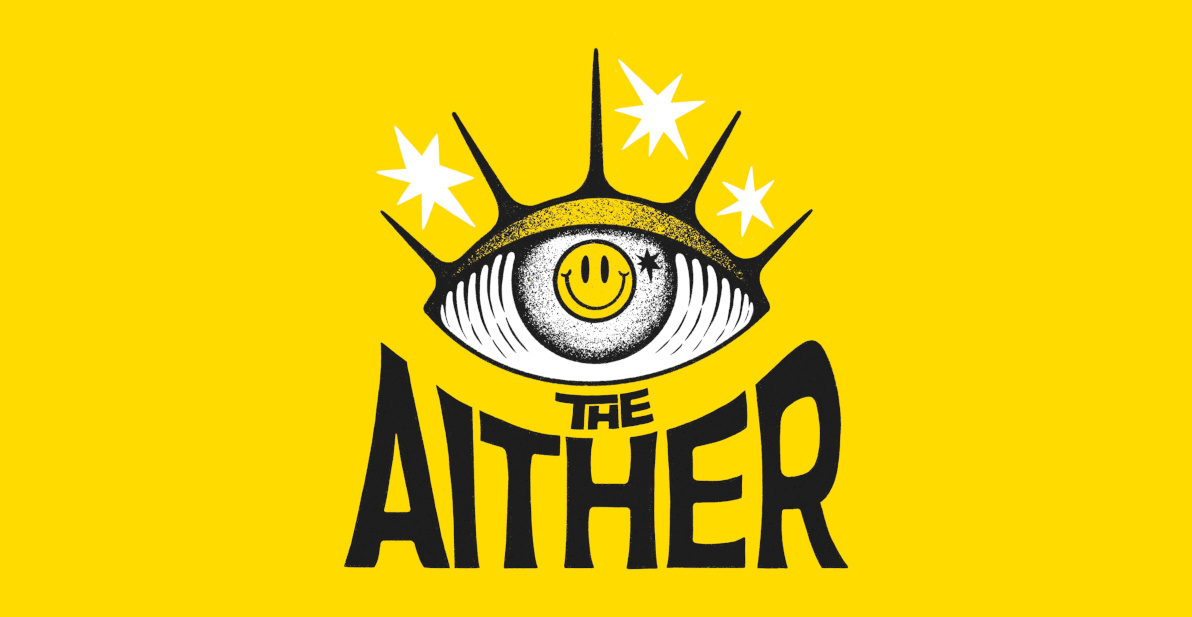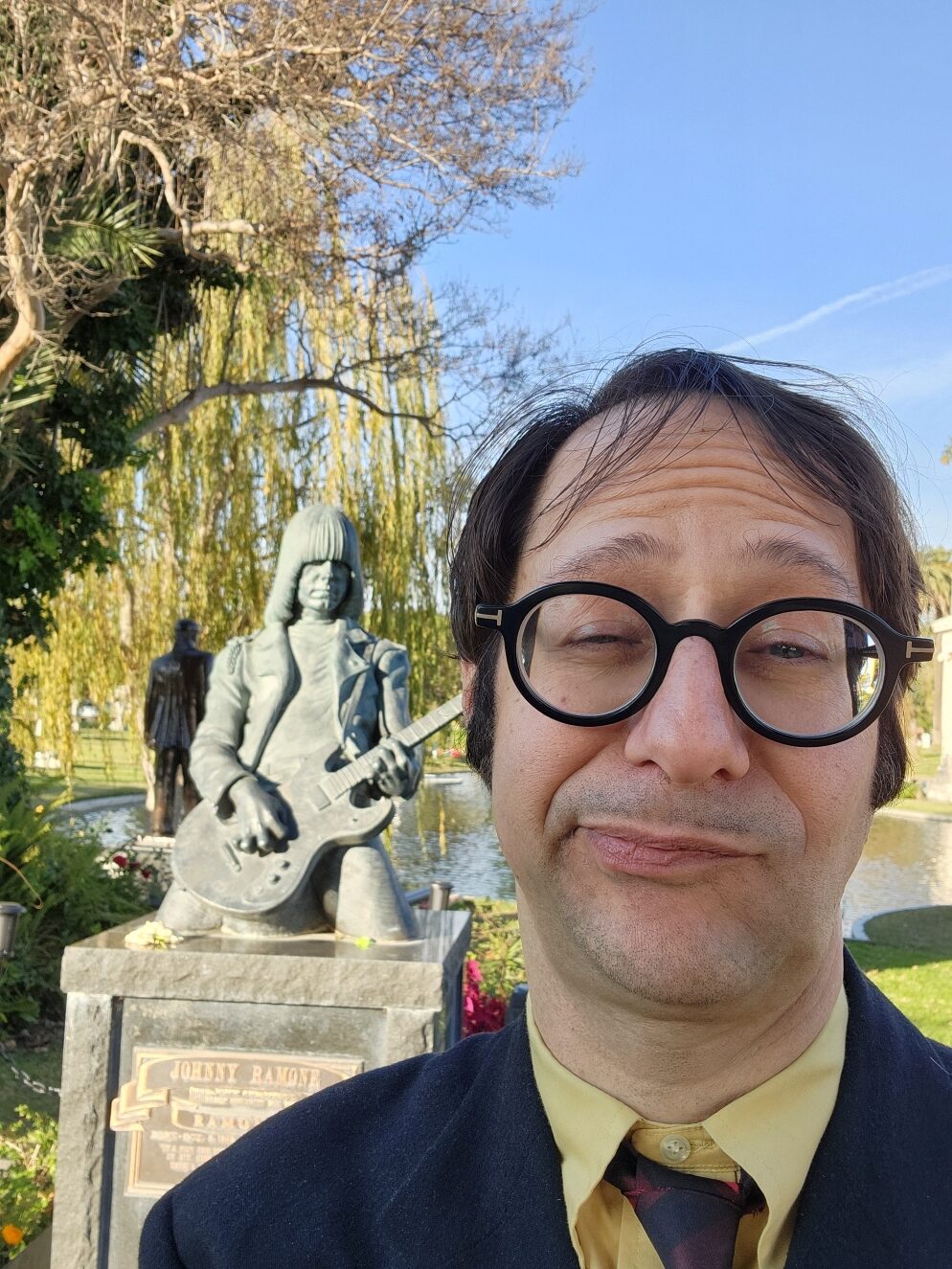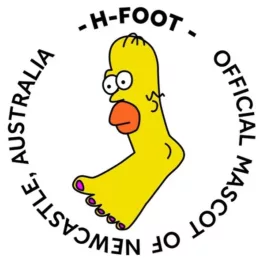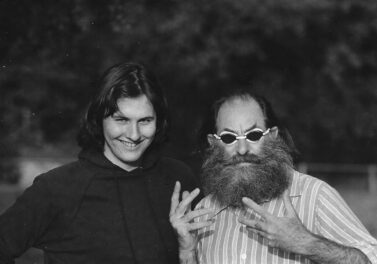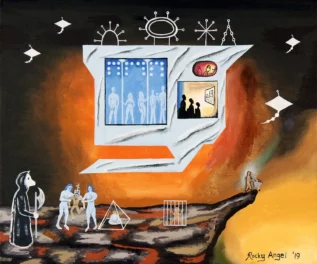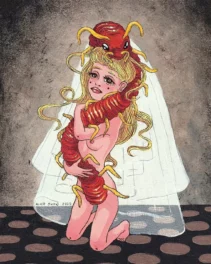Born in the heady era that was the 1960s Jeffrey Wengrofsky is a New York resident and punk who can tell you envious tales about seeing groups such as Necros live, as he spins you rare records from his immense collection, and shows you various zines he contributed to. He’s also a film maker, occasional actor, and curator. Noted for his documentaries about underground icons such as Taylor Mead, Axel Stocks, and The Godz. Along with his work as head of ‘Secrets of the Dead’ Film Festival, devoted to films that feature ‘death’ is some shape or form.
Recently, Jeff has added to his already impressive resume through the publication of his debut novel, ‘The Wolfboy of Rego Park’ (2023, Far West Press). Billed as a, “half pre-adolescent gothic fantasia, half inter-species rumour mongering, and half amulet of protection.” It has quickly gained acclaim from fellow writers and creatives.
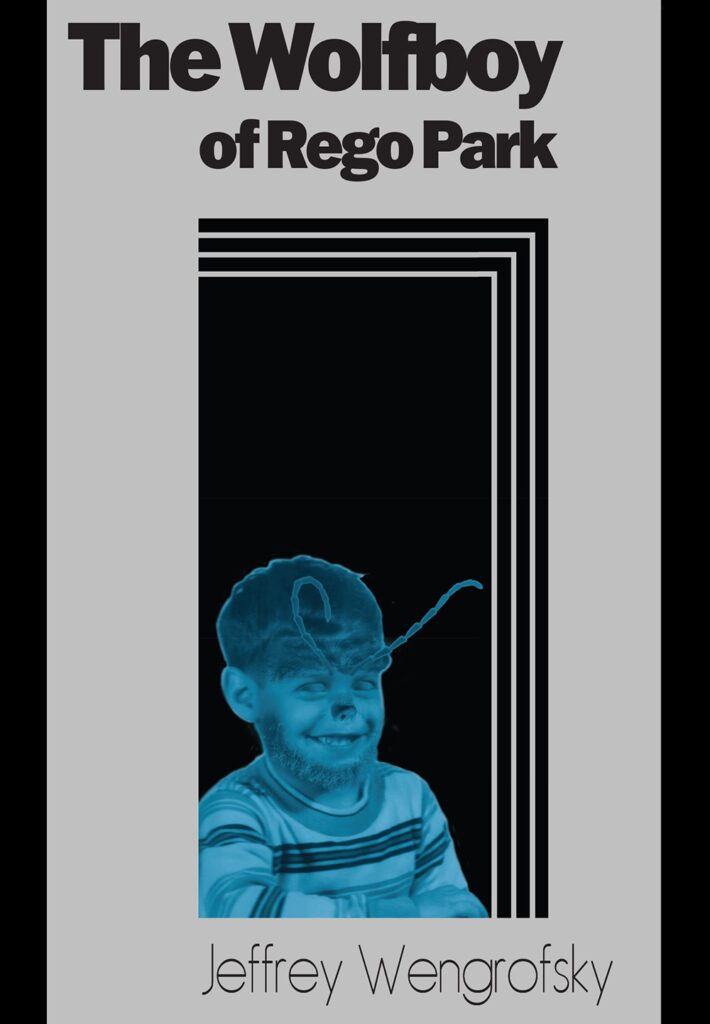
Wanting to get to know him better we sent Jeff some questions to answer over email.
Explore his world below…
Getting Acquainted
Name and date of birth?
Jeffrey Wengrofsky.
Born in the 1960s.
City, state, and country you currently call home?
New York City, USA.
City, state, and country you’re from?
New York City, USA.
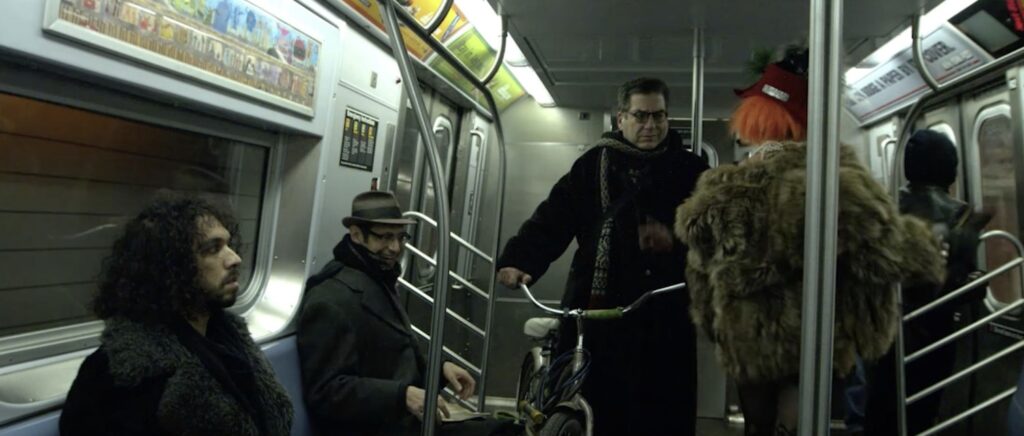
Please describe some memories – such as art, music, writing, friendships, adventures, study, romance, politics, film, travel, religion, work, crime… anything really – from the stages of your life noted below:
* Your childhood:
A working-class kid, my parents were not much into art or culture, except for television. Like many, I was raised partially by the TV. Other kids were often nasty, but I had a few friends.
School was a dreary institution that seemed to be primarily about discipline. Creativity was largely reserved for outside school and outside my family home.
I had a friend, Joey, whose parents were hippies. He turned me on to Monty Python and The Beatles. We made up our own stories (mostly horror), drew our own comics, satirized baseball cards, and wrote, costumed, and performed a two-person play about the trials of Hercules for a class. For a few years, we created our own little world.
I’d carry this sensibility into my other friendships, as well as my relationship with my brother, yielding stories, drawings, and generating our own characters that we could play in real life situations.
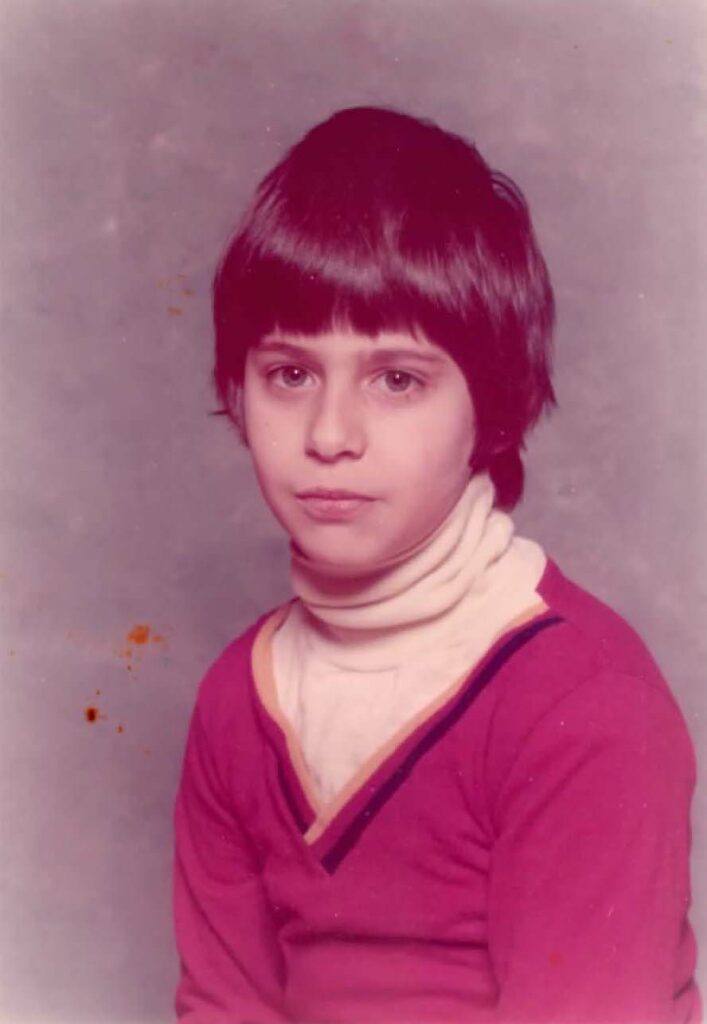
* Your teenage years:
Like many bored teenagers, I turned to drugs, weed mostly, but also booze, LSD, mescaline, and angel dust. Dust was crazy. A mantra often heard among degenerates back then was: “Dust is a must.” Getting spaced out was, at least, something to do, and it was primarily social.
Consequently, however, all this consumption did little for my psychological development and it certainly affected my learning, although I was also simply not committed to school. By senior year, I failed a standardized literacy exam because I’d never been taught how to write a business letter, and, for a time, I was placed in a class with kids with milk bottle shaped heads.
Discovering punk rock was a major turning point. It took me away from drugs, valorised my individuality, and made making art accessible for me – despite not having any training. At the time, in the early 1980s, punk was very underground and somewhat intellectual, which led me to find pleasure in reading for the first time, which, in turn, made me excel at school for the first time since the first grade.
Being a punk rocker wasn’t easy back then. The aesthetic was deeply challenging. Many people – especially family – found it very hard to accept that someone chose to be different. Faculty were often surprised that I would outperform my classmates on assignments.
When I got to college, mobs of students would rush to their windows to hurl insults and threats. I also faced some harassment from college athletes that nearly became violent on a few pitched occasions. If you weren’t around back then, it might be hard to imagine, as the accoutrements of punk – spiky and multicolored hair, spiky clothing, tattoos, piercings, leather jackets, doc martens, and whatnot – were later assimilated by popular culture during the Grunge era.
By this time, I’d also developed asthma, which meant that I grew accustomed to dealing with excess mucous. As things turned out, a skill I developed – knowing how to projectile spit – became very practical. I could spit across a street or up at someone insulting me from a second- or even third-story window.
Their insults and threats simply reinforced my negative views of what mass society and crowds do to people. It rendered me more yet determined, while my spit kept the fools at bay..
* Your 20s:
My twenties were all about punk: going to shows, writing for zines (including one of my own), and living in a communal house in Philadelphia for a short while.
I also found work at various non-profit organizations.
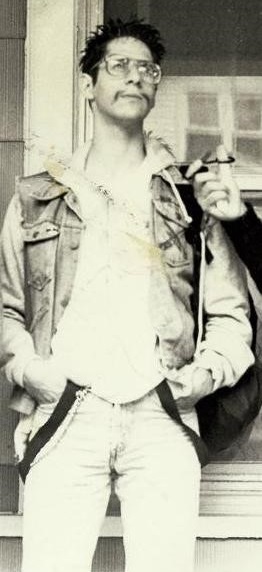
* Your 30s:
In my thirties, in addition to a continuing involvement with the punk world, I drifted toward becoming a professional pedant. Editing an academic journal, attending graduate school – at the ideology factory known as The New School – and teaching at Rutgers University consumed much of my time and energy.
Highlights included coordinating a conference at Yale, getting published in the Berkeley Journal of Sociology, and serving as Assistant to the Editor of Aperture Magazine, then arguably the most influential photography publication in America.
* Your 40s:
After graduate school, I reclaimed my original passions for music and punk, with the added twist of gothic horror. For two years, I hosted Voo Doo A Go-Go, a weekly deathrock event, and then, for a year, TerrorSex Cabaret, a monthly surrealist-goth event in which I was backed by a troupe of pro-dommes turned go-go dancers, each with an ErrorSex name: Fox Hole, Hope Diamond, Ethyl Bromide, Katrina Galore, and Eve Ning.
Among the live acts were members of Nick Cave and the Bad Seeds (James Sclavunos and Kid Congo), the World/Inferno Friendship Society, KMFDM (En Esch), Foetus (JG Thirlwell), Tulip Sweet and Her Trail of Tears, the Dresden Dolls, Botanica, Little Annie, Golem, New Math, The Flesh, etc.
Through my company – The Syndicate of Human Image Traffickers – I’ve produced and directed ten short documentaries on artists based in my neighbourhood: the storied Lower East Side of New York City. I’ve also acted in an immersive play (Speakeasy Dollhouse) and in several films by Mars Roberge (Scumbag, Mister Sister, Stars).
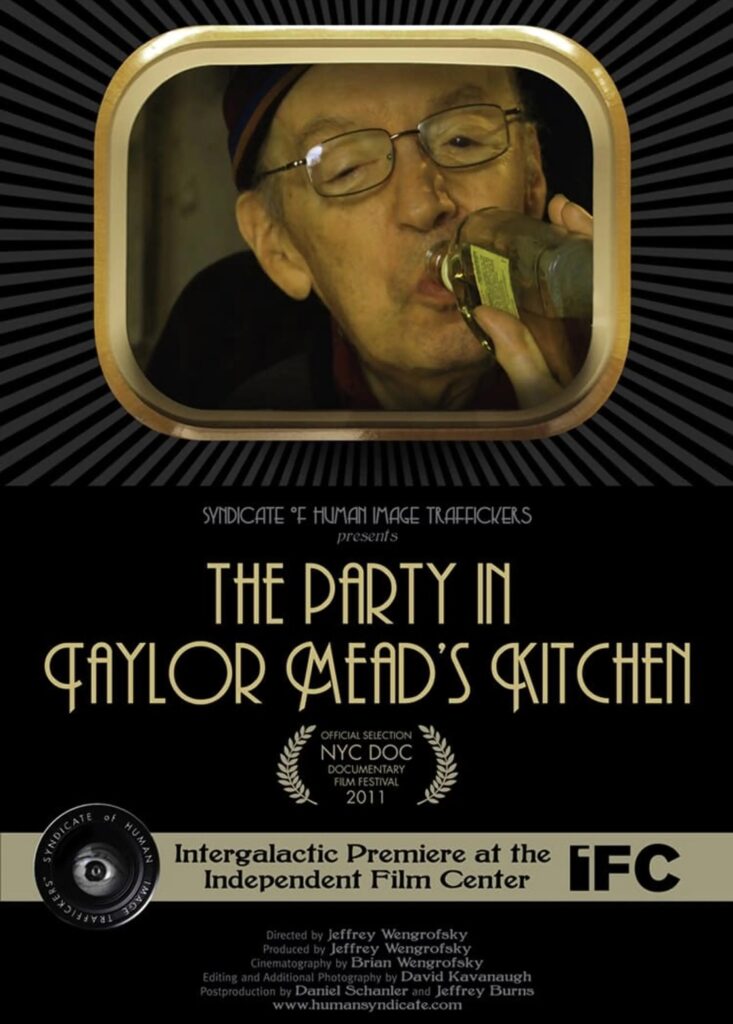
* Your 50s so far:
Last year, Far West Press published ‘The Wolfboy of Rego Park‘, a memoir of sorts, that has received some acclaim. I’ve toured for Wolfboy, reading six dates around London, two dates in Los Angeles, and, soon, Austin. Local readings in NYC led to Jonathan Toubin asking me to host a monthly event – The Metropolis Literary Salon – at TV Eye in New York City.
Personal motto(s)?
“It’s better to be forearmed than it is to be underarmed.”
What role did toys play in your childhood?
… and any favourites you remember?
I was a big fan of Lego. Back then, they were sold as plain, interchangeable bricks, which made the range of what a kid was likely to do with them much broader than today, as now Lego like a model that the kids assemble.
My dad worked in garages and gas stations for a while, so some of my memorable toys were tools and whatnot. I recall going to work with him and entertaining myself with sledgehammers, adding machines, and the like.
Creativity Questions
When and why did you first become interested in writing, movies, and everything creative?
… and any pivotal moments / influences regarding each of them?
As far as film goes, it was prompted by a time of loss. In 2004-5, six of my relatives died of a variety of unrelated natural causes. To reflect on the course of my life, I decided to get away from myself for two weeks in New Orleans. I stayed at the St. George Guest House, in the room where Johnny Thunders died and spoke to him every day. While he never replied, I left NOLA with the idea of making films and an idea for a short film that I haven’t (yet) made.
It wasn’t for about five years until a distant relative (Brian Wengrofsky), a professional cameraman, approached me about making a film about me. I declined, but soon called him back, proposing that, instead, we make films about other people. That’s how the Syndicate of Human Image Traffickers, my film company, got started. I’ve now produced and directed ten short films about artists connected to the Lower East Side, the two square miles of NYC that I call home.
The films have screened on four continents, including at the Sydney and Melbourne underground film festivals.
In addition, I’ve been running a film festival, Secrets of the Dead, for twelve years. It has an open call for submissions on FilmFreeway (and I encourage folks to submit their work). The festival screens annually in NYC and sometimes elsewhere, like London, LA, Lexington (Kentucky), and soon, Austin Texas, at the Eastside Cinema.
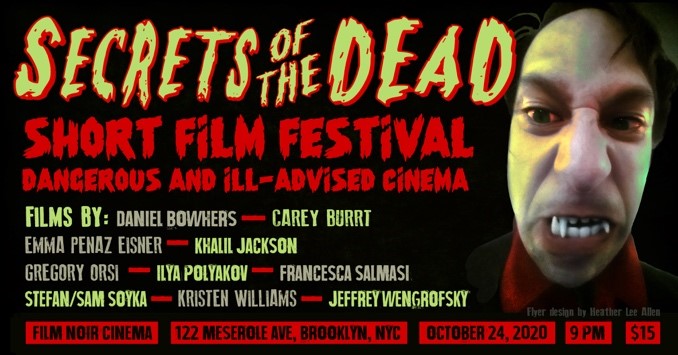
If you had to explain your creative endeavours to some recently crash-landed aliens…
What would you tell them?
It might be really hard to communicate with aliens, as we aren’t even likely to recognize them. If, somehow, and independent of context, I was tasked with telling some other life form about what I do, I’d tell them I’m trying to think through this life, in public, and in surprising ways, through the art, although in ways that may not seem evident if understood piecemeal.
Who are some of your favourite writers, filmmakers, artists, and musicians?
…and what is it about their works that so inspire and move you?
Writers: Isaac Bashevis Singer, Henry Miller, J. K. Huysmans, H.L. Mencken, George Bataille, Walter Benjamin, Susan Sontag, Martin Amis, Michel de Montaigne, Edgar Allen Poe, Mark Twain. etc.
Artists: William Blake, Diane Arbus.
Musicians: Sonny Vincent, Sabbath, Suicide, Nick Cave and the Bad Seeds, The Birthday Party, Rowland S. Howard, Joy Division, Misfits/Danzig, Amon Amarth, Bob Dylan and Leonard Cohen, The Fugs, Suicide, NY Dolls, etc.
Films: Night and the City, Fantastic Planet, Forbidden Dimension, Kiss of the Spider Woman, all Mel Brooks/Godard/Kubrick, and so on. There are too many to name. My tastes range from film noir to psychedelic films to strange horror. Few documentaries make my list, as most are made without imagination. They seem to be more about trying to persuade the viewer than in delighting them.
Please explain what ‘punk’ means to you – in both a musical and aesthetic sense?
Punk is easier to identify as a form of music, as stripped-down, energetic rock, than more broadly as a philosophy, though it seems to have something to do with not doing what other people do, even at one’s own detriment.
My art – films, writing, and festival curation – are definitely influenced by punk in terms of their velocity and energy.
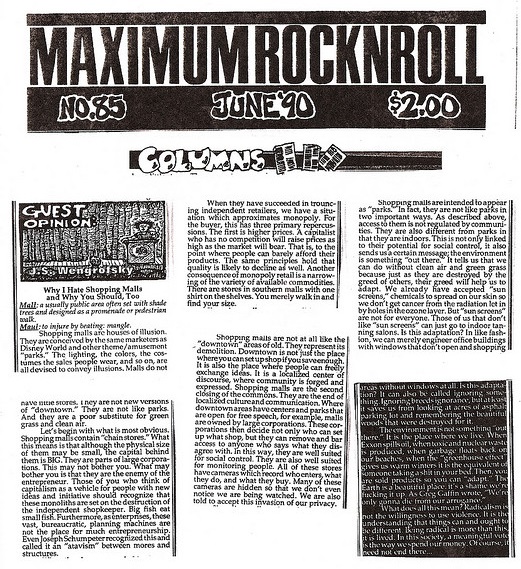
If people wanted to check out your stuff, work with you, or buy some of your wares – Where should they visit and how should they get in touch?
Films – www.humansyndicate.com
Book – https://www.farwestpress.com/far-west-books/p/wolfboy-rego-park
Festival – https://filmfreeway.com/SecretsoftheDeadNewYorkCityShortHorrorFilms
Do you have a ‘day job’?
… if so, what is it?
… and what impact does it have on your creative life?
I am the lead grant writer for an agency that provides services for people with mental illness, developmental disabilities, substance use issues, older adults, survivors of domestic abuse, foster children, and kids looking for a fun summer camp. As I see our members, how they are happy, clean, engaged, it’s a very inspiring place to work.
While I may not have the patience to be a good therapist, knowing that I can help them treat people with the use of one of my few superpowers – writing – is a kick.
Any news, upcoming projects, or releases you would like to share?
Yes, beginning April 11th, I’ll be hosting the Metropolis Literary Salon, a monthly literary event at TV Eye in NYC.
Then, on May 4th, I’ll read at Purgatory in Brooklyn, on a program including Das Fluff, Richard Cabut, and Figure of Fun.
Oh, and “Roaches I Have Known,” a short piece I recently wrote, has just been published in Pretty Obscure, an anthology published by Far West Press.
Odds & Ends
If you could live in any place, during any historical era – When and where would that be?
… and why would you choose that time and place?
NYC in the late 1970s as a wealthy debauch, though AIDS was then an issue and the city was very violent.
What are the top 3 items you own?
… and what is it about each of them that you so love?
Tuli Kupferberg, in a fit of generosity, gave me a drawing of his titled: “Writer’s Block.”
The idea, such as Tuli explained it, is that the artwork will serve as a distraction if my creative juices get stopped up, a distraction which will re-open the floodgates of the imagination. Fortunately, I’ve never had “writer’s block,” so I’ve never had to resort to Tuli’s medicine.
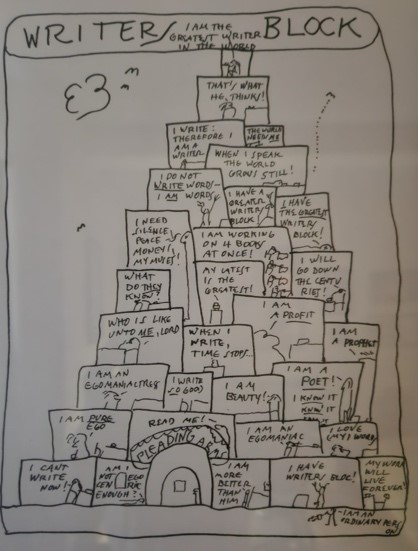
A wooden Mexican Day of the Dead terror mask.
Always fascinating.
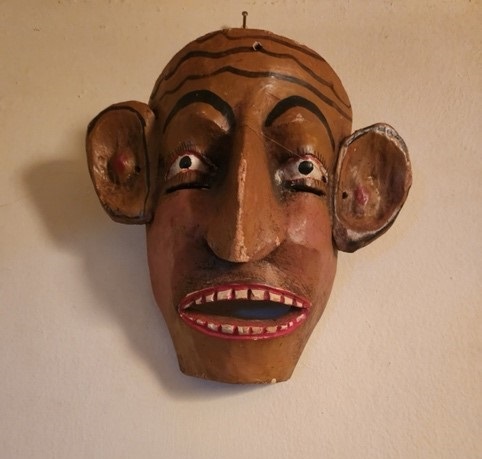
Plate by Lazar Markovich Lissitzky, better known as El Lissitzky.
ON the kitchen wall. Not for noshing.
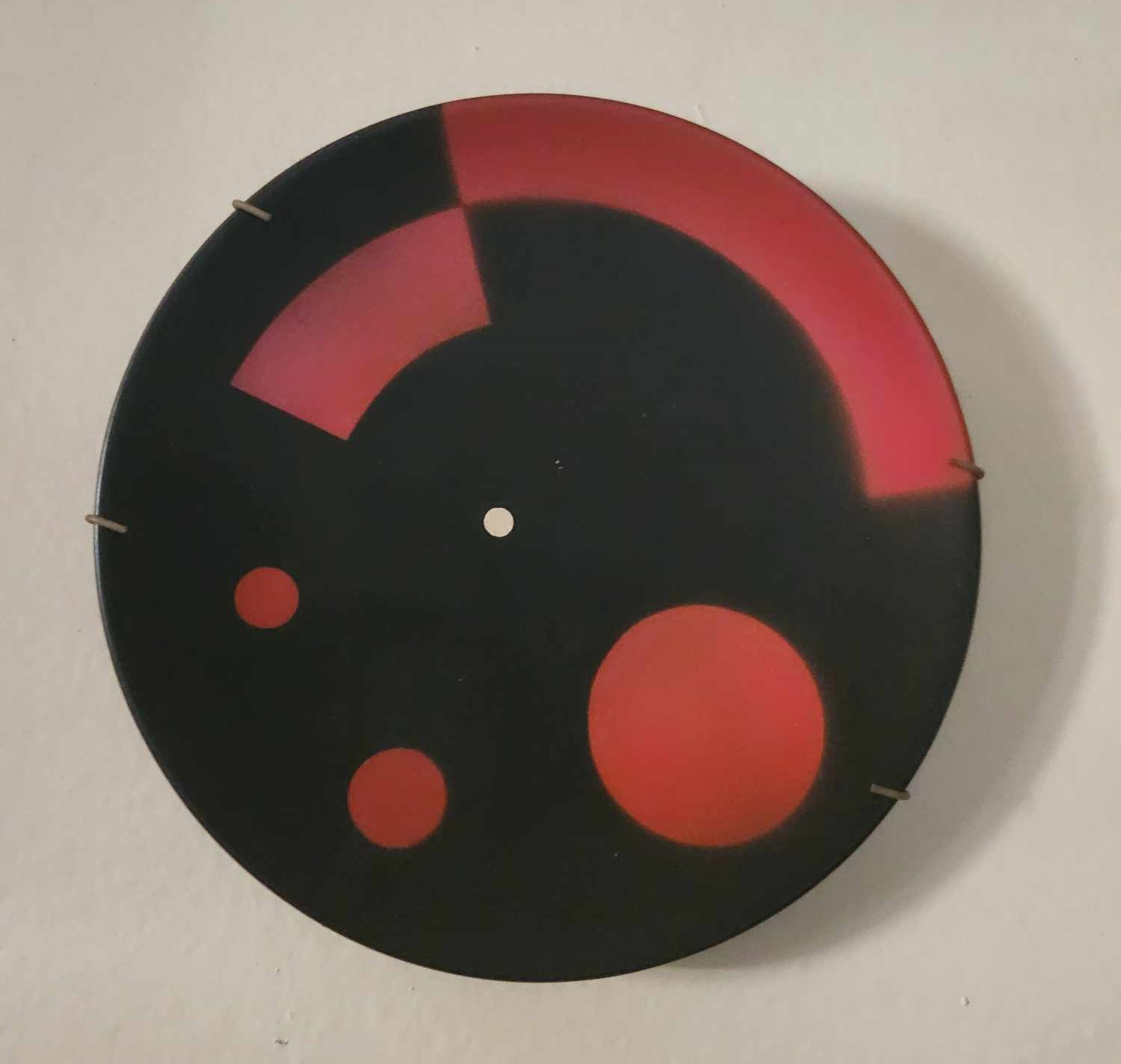
If you had to sum your long-term hometown of New York up in one object – What would it be?
… why did you choose it?
… and how does it represent New York to you?
Maybe Tuli’s ‘Writer’s Block.’
NYC is still sometimes the site of wild acts of daring creativity.
Please describe your last dream in detail…
I don’t recall my dreams.
Does sex change everything?
What do you mean?
Like this interview?
Yes, I think that it would.
What does God mean to you?
I understand it as referring to the ultimate energy and intelligence, structure and texture, at the spirit of the universe / existence / reality.
Of everything you have done so far, what would you most like to be remembered for?
Well, it would be nice to be remembered at all, even for a moment. Of course, I’d like to be known as a caring and thoughtful person, but in terms of my art projects, I suppose that my book, ‘The Wolfboy of Rego Park’, is my most favorite, though that may be largely a function of it being the most current.
I hope to soon begin a successor book which, once it is done, will then be the work I’d most like to be “remembered for,” unless I finish a…
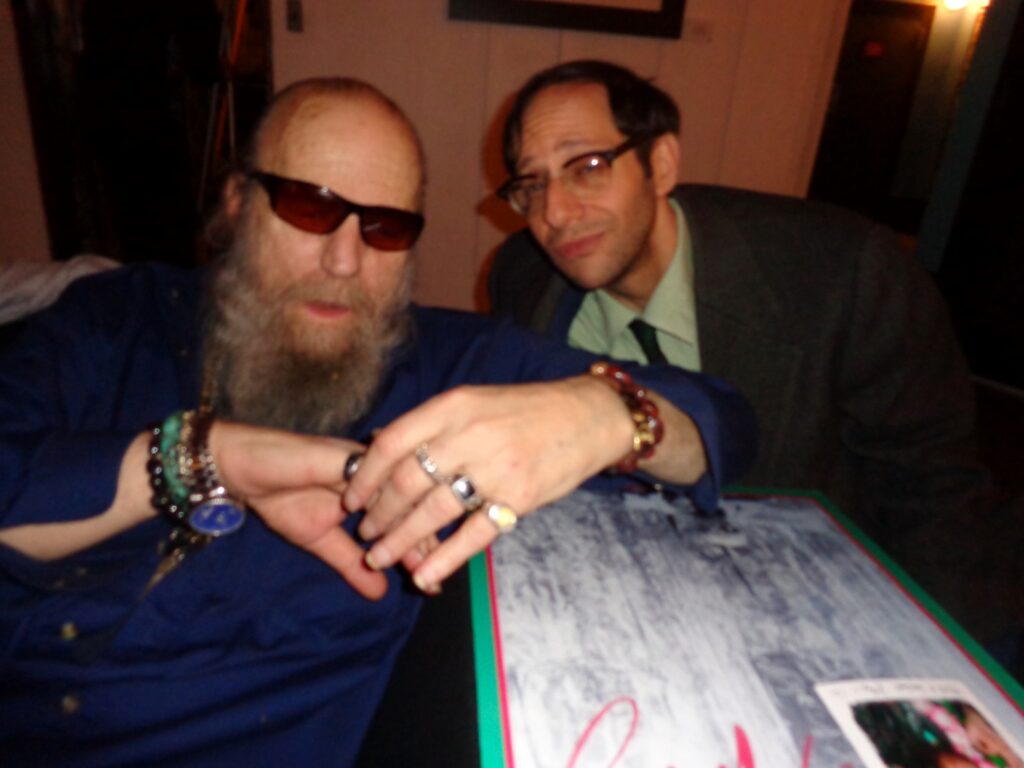
Links
- Jeffrey Wengrofsky – Facebook
- Jeffrey Wengrofsky – Instagram
- Jeffrey Wengrofsky – IMDB Entry
- Jeffrey Wengrofsky – Link to Buy Jeff’s Book, ‘The Wolfboy of Rego Park’, via Far West Press
- The Syndicate of Human Image Traffickers – Website
- Secrets of the Dead Film Festival – FilmFreeway Entry
All images supplied by Jeffrey or sourced online.
